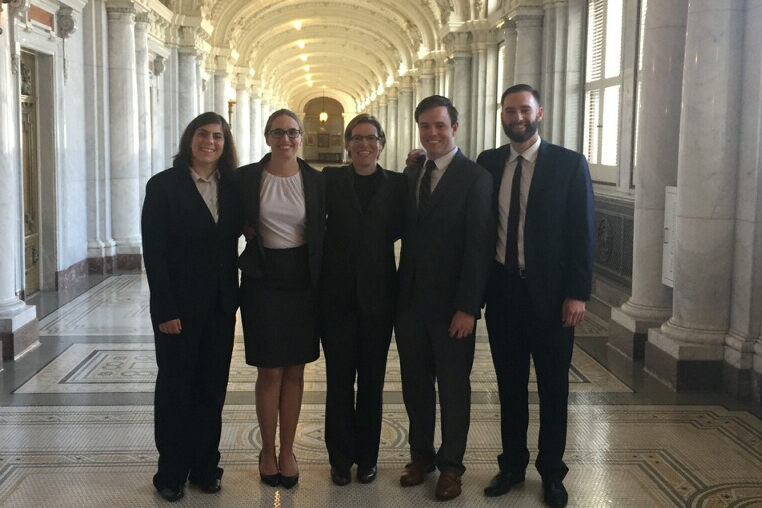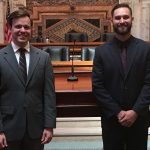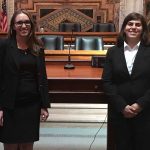Boston College Law School’s Ninth Circuit Court Appellate Program presented arguments before the Ninth Circuit Court of Appeals April 20, the fourth time in as many years that students in the program have appeared on behalf of immigrant clients who have criminal convictions. Since its inception in 2013, the Ninth Circuit clinic has won five of six cases and produced two published decisions. The clinic’s mission is to represent non-citizens with criminal convictions in an effort to restore proportionality and common sense to immigration enforcement.
The Ninth Circuit Court of Appeals permits law students to prepare briefs and argue a case to the panel of federal judges. Under the supervision of Professor Kari Hong, who founded and directs the clinic, 3Ls Brian Shaud, Chris Modlish, Katie Horigan, and Yara Kass-Gergi were this year’s participants.
In their case, Shaud and Modlish argued that California’s infraction proceedings were not “convictions” for purposes of attaching immigration consequences, California’s theft statute was overbroad to the generic larceny offense, and the term CIMT is impermissibly vague. If they prevail, a lawful permanent resident who has been in the country for 30 years, has citizen children and a citizen spouse, will have his removal order reversed and be permitted to stay.
In Horigan and Kass-Gergi’s case, they argued that Nevada’s conspiracy to possess statute is overbroad and indivisible as a drug offense because Nevada regulates more substances than the federal government does and the criminal record in this case, which is inconclusive, requires that the ambiguity be resolved against the government. If the panel agrees, they would overturn an en banc decision that resolved the ambiguity against the non-citizen. If the students prevail, a lawful permanent resident who had been in the country since age two until his deportation at age forty, who has four citizen children, a citizen wife, and parents and grandparents who are citizens and green card holders, will be allowed to return to the country.
“The students mastered highly technical, complicated, and novel legal issues and were poised, polished, and impressive all around,” Professor Hong said.
The Court’s decisions on the clinic’s seventh and eighth cases are expected within the next six months.
Photo at top, L-R: Kass-Gergi, Horigan, Professor Hong, Shaud, Modlish
Video from the Ninth Circuit arguments




